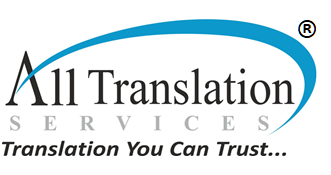Can the tourism industry survive without human translators?
Developments in machine translation are making people wonder if AI will replace humans in the tourism industry translation. No, artificial intelligence can never replace human translators completely. As robots lack the subtlety inherent in each language’s particular grammatical rules, semantics, syntax, and cultural impact. AI cannot communicate effectively.
Therefore, the future of translation is one on which humans and artificial intelligence continue to collaborate. Hence, AI can never replace the human element completely.
Why Machine Translation Can’t Replace Human Translators In Tourism?
Numerous expert translators believe that computer translation will never be able to replace human translation completely. The simplest answer is that machines continue to make errors during the translation process for many reasons. Have a look at why machine translation can’t replace human translators:
Higher Quality Content
Human translation is easy, natural, and based on the original content’s creative interpretation. Further, human translators can understand the main point of the text they translate. However, machine translation can’t.
Moreover, human translators will know the cultural language differences, nuances, tone, and phrases that native speakers use. Also, how to use them. Furthermore, they can’t do a good job because machine translation engines don’t understand the context. The tourism industry requires quick and dynamic translation that a machine simply cannot provide accurately.
Language Proficiency
Human translators know both languages. So, their experience helps them translate any content to meet the needs of the people who read it. Further, it is cheaper and faster to use a machine to translate than to use a person to translate. However, it doesn’t understand what a document means.
Further, people who work as translators have natural language skills. Additionally, a good sense of how to word and think about what they’re translating.
Machines can’t match the range of a human mind
Machine translations get better at translating engineering manuals, which follow a set of rules. On the other hand, language doesn’t have a set of rules. It’s a little wacky, and it has a personal touch.
Moreover, it has a lot of different meanings and emotions. As, it’s based on so many different cultural ideas, and it’s always changing.
Translation Skills: More than just replacing words with new ones
In the end, the artificial intelligence that machine translators use can never be as smart as human intelligence. However, machine translators are fairly efficient. However, human translators provide the information with the particular relevance it lacks.
Further, if proofreaders and copy editors are in charge of the translation process, it will be clear and correct. As humans can only understand the complexity of a language. Moreover, they are the only ones who can make the translation better for the people who need it.
However, machine translation has progressed a great way in a short period. Further, these are the characteristics that contribute to the effectiveness of professional human translation for day-to-day commercial use. Moreover, the best way to get the best translation for your projects is to use professional translation services.
